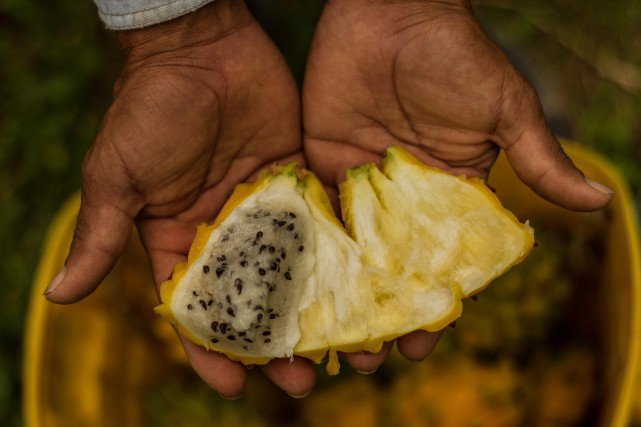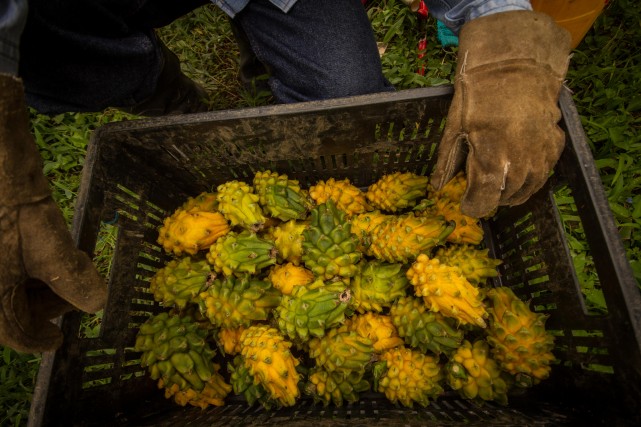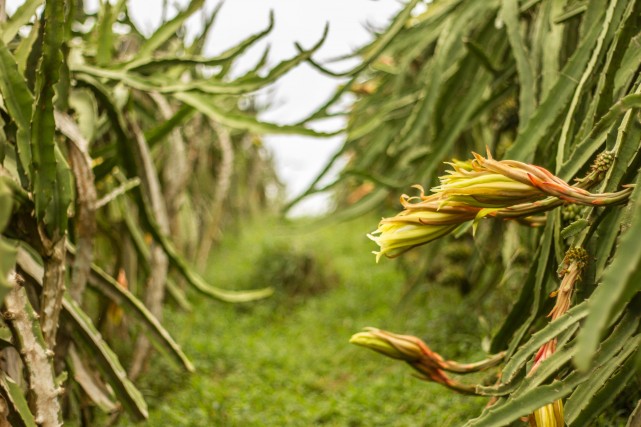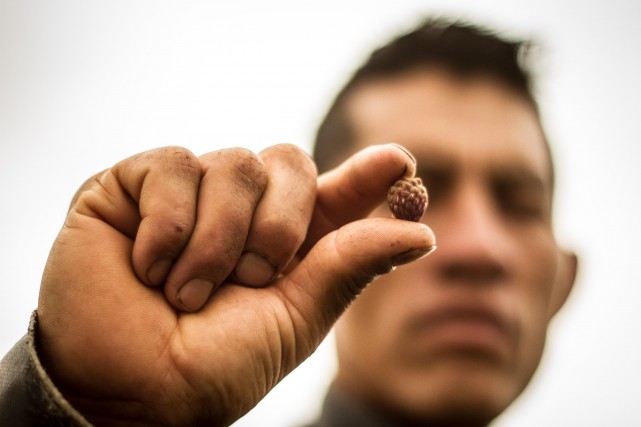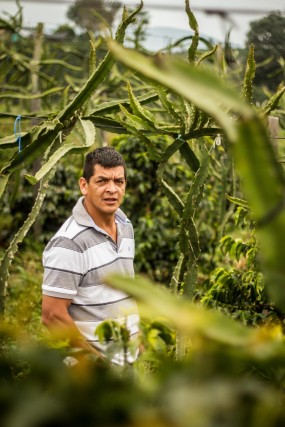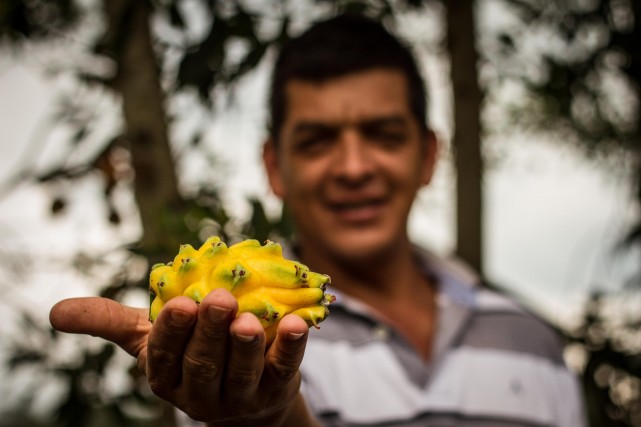Fruandes is a company that works closely with six different small-scale farmer associations located in the Colombian Andes. The organic farms are located specifically in the Nariño Department in the south of the country, at around 3000 m above sea level, which is ideal for fruit production. Since 2007 we sell certified organic.

Hernán Chamorro
Hi, my name is Hernán Chamorro from Fruandes. Thank you for buying our organic pitahaya or goldenberry.
What exactly does farming in harmony with nature mean?
Farming in harmony with nature is not just the key to organic agriculture; it is the way we have farmed in this region for centuries. Our farmers reserve special areas of their land to grow native flowers, and all the crops are surrounded with green barriers and fences that form a great habitat for a wide range of insects, animals, and birds, including wild mice, possums, snakes, and lizards. What is particularly good to report is the abundance of bees, which are very common particularly where there are flowers…It´s a true bee paradise !
Can you tell us a little bit more about the soil and how you nourish it?
The soil in this region is of a very high quality. It is best described as clay loam soil, and we are blessed with abundant organic matter and very active microorganisms. More than 5% of the soil is organic matter.
In order to keep the soil vibrant and diverse, we apply a crop rotation with corn, pastures of grass and clover, and sometimes quinoa. Furthermore, we apply compost which we produce ourselves from vegetable waste plus manure from animals such as cows, horses, and guinea pigs. Composting is done in regular turns to ensure that the temperature is always maintained at about 70 degrees Celsius. Consequently it is applied to the crops when temperature has decreased to about 20 degrees Celsius.
Seeing that the farms are based in the mountains, how do you prevent runoff and soil erosion?
The key to preventing soil erosion is to ensure that the ground is always covered with crops that are firmly rooted in the soil. A good example are clovers, which we also use around the crop lines.
Can you tell us a little more about the social impact of your work?
At our processing plant all employees have permanent contracts and are subject to all conditions required by national law. In the association all members and workers work under good conditions and are paid a fair wage. It is important to note that in the rural areas of Colombia written contracts are not common; most jobs are seasonal and the payment is based on a daily activity.
However, the association is working on finding the best way to formalize labour conditions with all workers while respecting their cultural background. We recently moved our operation to a new city with one of the highest unemployment rates in the country. We were subsequently able to offer about 60 new jobs and indirectly support new local businesses. We particularly employ women to help empower them. Today 80% of the employees are women in both the processing plant and at the farmers associations.


